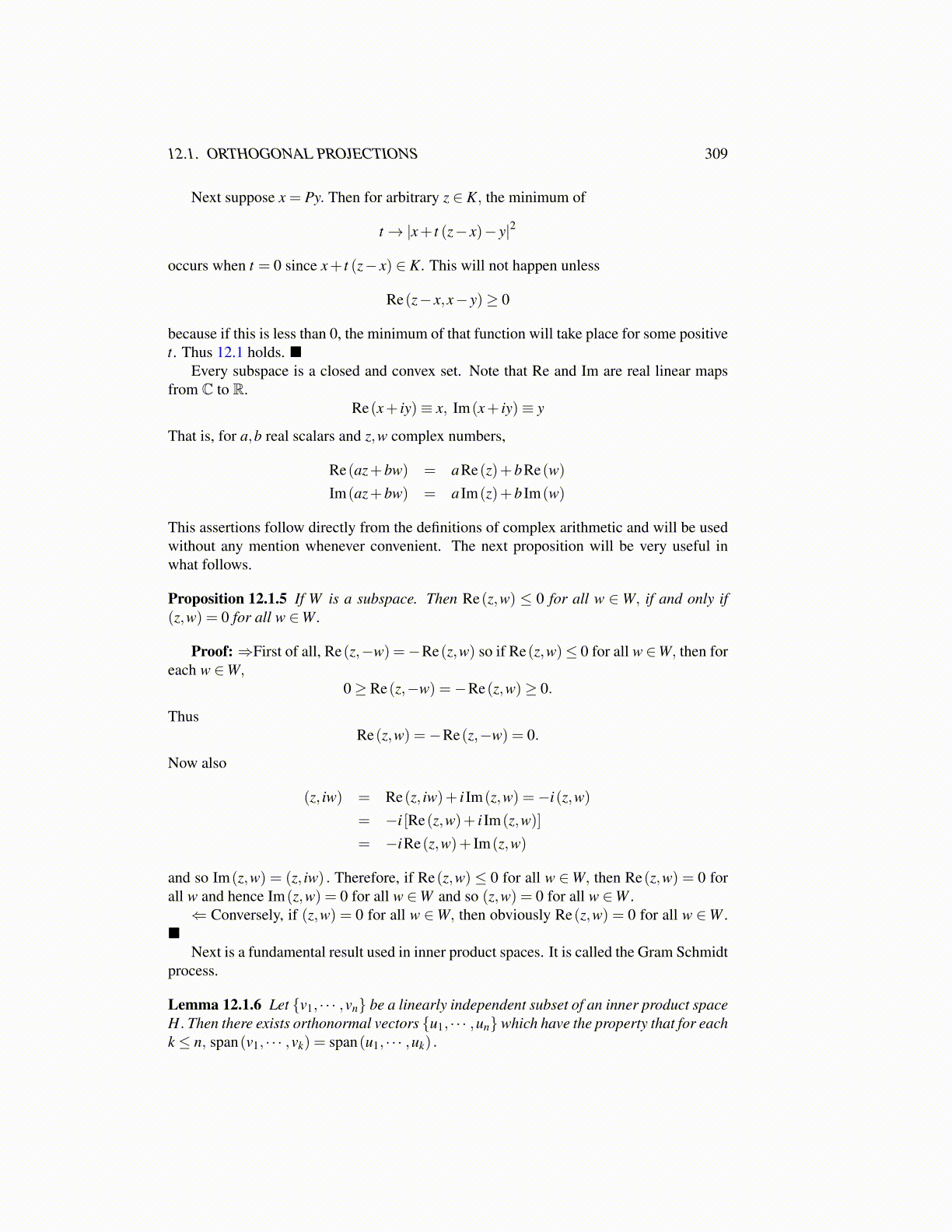
12.1. ORTHOGONAL PROJECTIONS 309
Next suppose x = Py. Then for arbitrary z ∈ K, the minimum of
t→ |x+ t (z− x)− y|2
occurs when t = 0 since x+ t (z− x) ∈ K. This will not happen unless
Re(z− x,x− y)≥ 0
because if this is less than 0, the minimum of that function will take place for some positivet. Thus 12.1 holds. ■
Every subspace is a closed and convex set. Note that Re and Im are real linear mapsfrom C to R.
Re(x+ iy)≡ x, Im(x+ iy)≡ y
That is, for a,b real scalars and z,w complex numbers,
Re(az+bw) = aRe(z)+bRe(w)Im(az+bw) = a Im(z)+b Im(w)
This assertions follow directly from the definitions of complex arithmetic and will be usedwithout any mention whenever convenient. The next proposition will be very useful inwhat follows.
Proposition 12.1.5 If W is a subspace. Then Re(z,w) ≤ 0 for all w ∈W, if and only if(z,w) = 0 for all w ∈W.
Proof:⇒First of all, Re(z,−w) =−Re(z,w) so if Re(z,w)≤ 0 for all w ∈W, then foreach w ∈W,
0≥ Re(z,−w) =−Re(z,w)≥ 0.
ThusRe(z,w) =−Re(z,−w) = 0.
Now also
(z, iw) = Re(z, iw)+ i Im(z,w) =−i(z,w)
= −i [Re(z,w)+ i Im(z,w)]
= −iRe(z,w)+ Im(z,w)
and so Im(z,w) = (z, iw) . Therefore, if Re(z,w) ≤ 0 for all w ∈W, then Re(z,w) = 0 forall w and hence Im(z,w) = 0 for all w ∈W and so (z,w) = 0 for all w ∈W .⇐ Conversely, if (z,w) = 0 for all w ∈W, then obviously Re(z,w) = 0 for all w ∈W .
■Next is a fundamental result used in inner product spaces. It is called the Gram Schmidt
process.
Lemma 12.1.6 Let {v1, · · · ,vn} be a linearly independent subset of an inner product spaceH. Then there exists orthonormal vectors {u1, · · · ,un}which have the property that for eachk ≤ n, span(v1, · · · ,vk) = span(u1, · · · ,uk) .